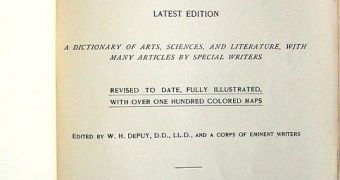We can safely say now that the world of today is a lot different than it was a century ago. This is especially true when it comes to information sources, and also the amount of data available to all people. In the past, publications such as the New York Times and the Encyclopedia Britannica were setting the norm when it came to accurate information, but all that changed when the TV and the Internet appeared. Now, at least in theory, any type of information can be extracted from various websites within 5 minute tops. But experts are asking, how reliable is this data?
Many people, at this point, find themselves at a loss when it comes to determining which information to construct their arguments and reasoning upon. A person can become a critic of global warming very easily, for example, if he or she only reads conservative blogs. On the other hand, the same individual can lose track of remaining objective and skeptic if he or she only reads socialist or liberal blogs. Some have forgotten that the key to good and informed decisions is to hear both sides of the argument, and not necessarily only the one that best suits their political, religious, economic or social views.
“I think we're all walking around in a big Saharan data sandstorm. Now it’s more of an information democracy, or maybe an information anarchy, which is great in some ways, since we have so much more information out there, but it brings with it a boatload of confusion and chaos and uncertainty,” says A.J. Jacobs, who is the author of the book “The Know-It-All.” He spent an entire year of his life reading all 32 volumes of the Encyclopedia Britannica, the 2002 edition. While the data contained here come from 4,000 expert contributors, the publication has not escaped criticism, for certain inaccurate information it featured in its pages over the years.
The Encyclopedia has even been compared to Wikipedia in terms of data accuracy, in a study that has been published in a 2005 issue of the esteemed scientific journal Nature. The editors of the book asked the journal to retract the study, arguing that it is invalid, and that there is no comparison between the two outlets. However, they said that they had never claimed that the Encyclopedia was error-free, nor could it possibly be. While Wikipedia is subject to data removal, if inaccuracies are found, other sites are not. And this is very dangerous, considering that US citizens alone used Google, Yahoo! and Bing for 15.2 billion searches last month, LiveScience reports.

 14 DAY TRIAL //
14 DAY TRIAL //